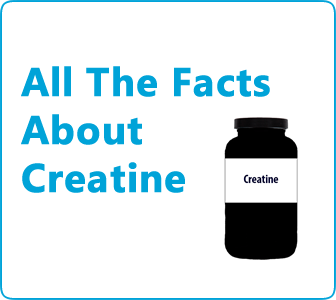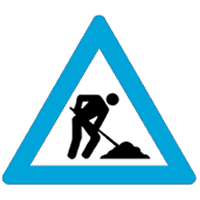A good creatine powder supplement is without doubt one of the best legal supplements you can take.

Itcan increases strength, speed, power and muscle mass noticeably to the muscles of the body if used correctly but does creatine work and what is creatine in this article we answer these questions. Creatine raises muscle energy availability. Muscle Cells in our body store energy in the form of a molecule known as adenosine triphohsphate (ATP).
The amount of work our muscles can perform is a result of the amount of ATP they have stored as well as the ease with which ATP is regenerated. Creatine is a natural component of skeletal muscle. Meat and fish are the richest natural sources of creatine. However, the quantity is low due to cooking these foods.
What is Creatine?
Creatine is an organic compound found naturally in red meats and fish. For those who ingest these foods day by day the typical amount of creatine digested is roughly about 1 gram.
When to take Creatine?
A five-gram dose of creatine was found to significantly elevate blood creatine concentrations peaking about one hour after ingestion and returning to baseline levels after 2-3 hours. In order to keep creatine elevated throughout the day, a five-gram dosing regimen every 2 hours for 8 hours was adopted.
This is to be maintained for the first 5 days of use after which a two 5 gram servings are to be ingested twice a day.
Benefits of taking Creatine Creatine monohydrate will assist you train harder in the gym so that you lift more weight and build more muscle.
Creatine won’t make you gain fat, but it will help you gain more muscle.
Creatine cycles

Creatine is usually taken within a 6-12 week period known commonly as a cycle. The first week of the cycle is spent ‘loading’ where the you the individual takes 20 grams of creatine monohydrate per day to saturate your cells.
After the first week (weeks 2-onwards) 10 grams of creatine is to be consumed twice daily -once in the morning on an empty stomach and once after training.
Take 30-40 minutes before consuming your next meal for maximum absorption and assimilation of the creatine.
Include dextrose in your shake if you’re just taking straight creatine monohydrate and whey protein. This is known to increase the uptake of creatine within the cells.
[NOTE: Follow the Directions as stated by the Creatine Powder Supplement producer you purchase from.]
The Ground Work

From my years of taking creatine I have noticed that creatine results were only ever as good as I made it. What I mean by this is that if I didn’t do the proper ground work prior, during and even after my 6-10 week cycle I would find that my muscle and strength gains were not nearly as significant as when I did do this ground work.
This ground work is far from just doing the hard yards in the in the gym. In fact it is everything but your weightlifting routines in the gym that can see you reap more creatine benefits.
Before you begin gulping back your creatine follow a few guidelines:
Top Tip: Pick A Time Carefully
In order see fast muscles gain you should chose a period of 6-12 weeks where you do not have any other major commitments such as work deadlines, vacations, excessive aerobic exercise etc.
This period should allow you to ALWAYS have time to lift weights 3-4 times per week.
New Weightlifting Program

Get rid of your old weightlifting routines that you have been doing for months. Chances are that your muscles are stale and not getting full stimulation from doing the same old exercises every week.
Start a new weightlifting program made up of good compound exercises to increase strength and encourage new muscle mass.
Take a Week
Establish your Max lift for each exercise on your program during your loading week. Take note of the results.
Over the coming weeks of your cycle you MUST aim to improve on these lifts every week to maximise gains in strength and muscle mass.
Eat, Eat & EAT!
Eat approximately 1.5 grams of protein per pound of bodyweight and consume 6-7 meals per day. You should also be consuming a greater number of calories than your Calorie intake for maintenance of body weight.
Drink, Drink & DRINK!
Drink a 4-6 litres a day to ensure that the creatine you drink is absorbed properly. Avoid caffeine.
Maintain your lifts
If you were tracking you lifts over the cousre of the time you were taking creatine then you should aim to maintain these lifts so that you know you have gotten stronger from the time you have taken this creatine powder supplement.
Creatine and Women
Creatine and women are words that infrequently heard together. If you’re a woman with a goal to gain muscle mass creatine can certainly be advantageous for you.
It’s no mystery that very few women take creatine or in fact any powder supplements for that matter. Commonly, it’s men who you see guzzling back protein, creatine and other soluble supplement powders.
Creatine and women, why don’t they mix?
Well, my theory is that men tend to have different goals when it comes to working out. Typically, men are more orientated around building muscle mass which leads to an intake of supplements such as creatine for them to grow.
Women on the other hand are far less fixated about building muscle especially for aesthetic reasons. This tends to be due to the sparse number of women who engage in power and strength based sports such as rugby, football, weightlifting and so on where creatine and protein supplements can be beneficial to performance.
From my own personal experience the majority of women’s goals with regard to health and fitness tend to be around losing fat on various regions around the body. The added water retention that a creatine cycle induces makes it clear why women usually steer clear of introducing creatine in their diets. However, for those few women who do engage in power or strength based sports or who wish to gain muscle mass I would highly recommend supplementing your diet with creatine.
You’re far more likely to see improvements in strength and power as a result of taking.

Creatine In Food

Creatine is a naturally occurring amino acid in the muscles of the body, similar to the building blocks that make up proteins. It is manufactured in the liver, kidneys and pancreas. Its use is to supply energy to muscle cells and it acts as a storage battery for the energy that is produced from food.
Red meats and fish are natural sources of creatine. With a balanced diet, the majority of people get all of the creatine they need to maintain their health. However, Creatine is degraded during cooking making it very hard to get a decent dosage of creatine from foods.
Obviously if you are a vegetarian you will be missing out on creatine without supplementing it.
Sources of Creatine in Food
For example, 2-3 pounds of raw meat or fish contain the equivalent of 5 grams of pure creatine monohydrate powder. Since heat degrades creatine, however, cooking will reduce the creatine content of these foods and increases the amount you’ll need to eat to obtain a given amount of creatine.
While it is not possible to take in enough creatine through diet alone to gain a significant benefit, we can safely add it as a supplement. Extensive research shows that creatine can help you pack on muscle size and strength fast with no harmful side effects, when combined with your weight training regime.
Many athletes turn to various supplements to get a winners edge and many also find they are throwing their money away on useless, and sometimes harmful, garbage. Creatine, however, may actually be able to deliver improved athletic performance – for a short duration. It has been shown to be such an advantage in body building that some countries have banned the use of several forms of creatine in competition.

YES! If you want to gain muscle mass and add strength!
Creatine is without doubt the most impressive natural performance enhancers readily available on the market today. This is a due to the way in which it can noticeably increase strength and muscle mass over the period in which you use it.
If you’re someone who is serious about their training and by that I mean someone who on a consistent basis trains intensely, eats frequently and well and some who watches their lifestyle to gain muscle mass then I would definitely recommend taking creatine.
If you are one of these people who constantly tries to eek out another rep in the gym or add another singular kilo to a squat or bench press then creatine will be beneficial to you.
People Who Shouldn’t Take Creatine
I wouldn’t recommend taking creatine if an individual who doesn’t maintain a planned and tracked workout routine and someone who only eats when then can and when they do it’s usually foods of low nutritional quality such as deli sandwiches, pizzas, fries etc.
To be honest, the later type of person tends always to be the ones who complain about the ineffectiveness of Creatine. This is because these are the people who are looking for a quick fix or a miracle supplement that is going to get them looking like the guy on the cover of a magazine.
The truth is though that creatine does make a significant difference to those who count all the kilos and the rep they push in the gym. In addition to this I don’t mean purchase the $50 creatine powder supplement on the shop shelves.
I’ve taken many creatines from over hyped creatines to creatine ethyl ester and the one I always keep return to is Micronized creatine monohydrate which happens to be the cheapest and also the best!

Find out before you take any creatine powder supplement to gain muscle mass.
Over the course of the past few years that I have been taking a creatine powder supplement I have found no adverse side effects as a result of it.
I didn’t go bald, nor did I get super aggressive or get kidney damage despite what other sources may indicate.
If I were to name an effect it had on me other than increasing my strength and lean muscle mass it would be water retention and an increase in overall drive which may have been a result of elevated testosterone.
Water retention from Creatine
If you’re taking creatine monohydrate expect to notice an increase in body weight and also a visible appearance of looking a bit “soft” as bodybuilders would say. This is due to water retention which is sucked in and stored in the muscles cells.
This water results in a lack of definition to the body for the period in which you are taking creatine. Do not worry though, this water retention usually stops once you cease taking the supplement.
Expect to see a 1-2kg increase in bodyweight during the end of the loading phase of taking creatine.
For the average person water retention is the only negative effect –if you want to call it that- of taking creatine. However, the long term negative effects of creatine are uncertain as research of the subject is relatively recent.
Always stick to the manufacturer’s advice on how and when to take the product as creatine levels can vary from each individual serving of any give creatine powder supplement. Also, choose a period of say 6-10 weeks whereby you plan to use creatine.
After this space of time take at least a 2 month break from using the product so the body can get familiar with life without creatine
Although, no negative side effects have ever been noted in the research but, then also some effects that you may physically experience may be:
- Subtle chest tightness
- Weight gain in the form of muscle mass and water retention
- Water Retention
- Gas problems and bloating
- Heat Intolerance
If you are experiencing a lot of adverse side effects many a times then you should stop taking creatine right away and talk to your doctor.
What’s Your Opinion?
Let us know what you think about creatine, do you use it? have you used it and not had the results your where expecting? tell us your experiences and let everyone know from personal experience.
Social Sharing
If you enjoyed this article about creatine please share it on your social networks and let your friends and family read this information.